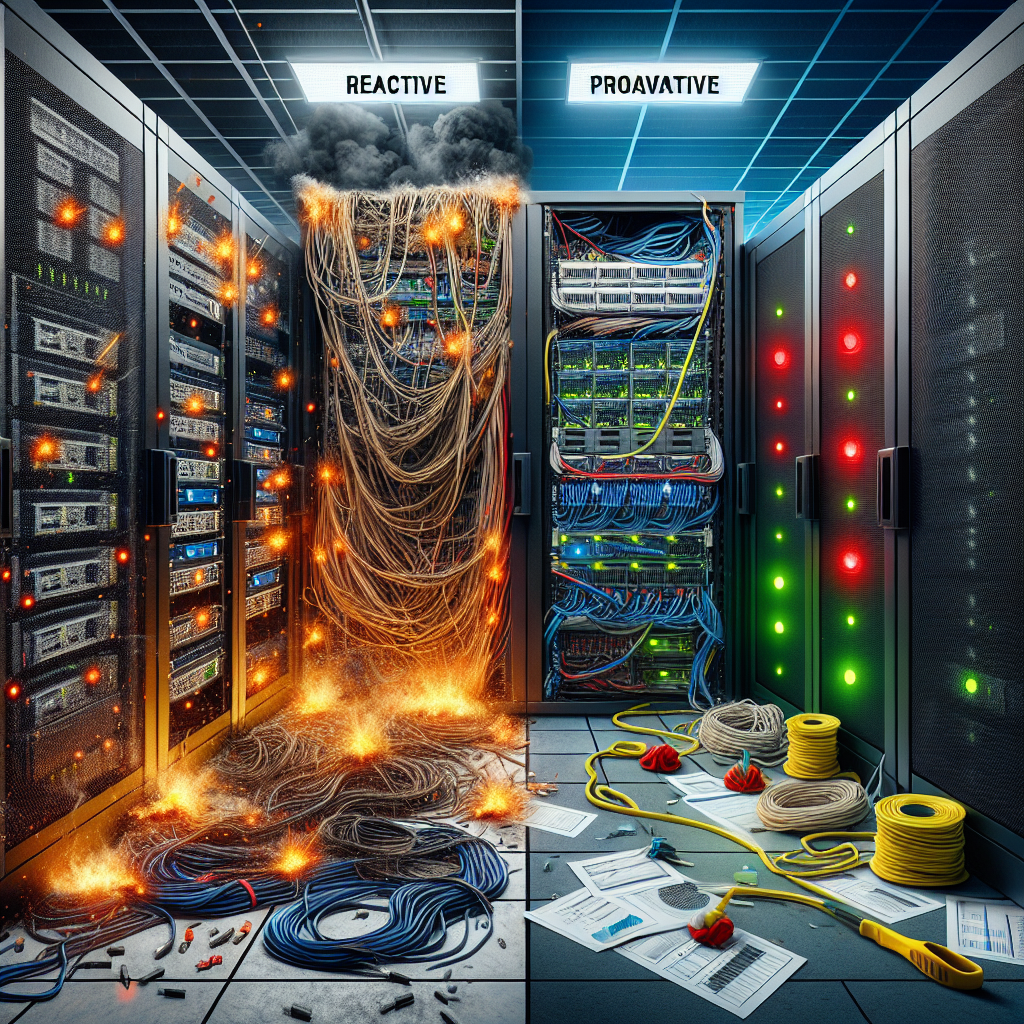Your cart is currently empty!
The Impact of Reactive Maintenance on Data Center Performance and Reliability

Data centers play a crucial role in today’s digital world, serving as the backbone for storing, processing, and transmitting vast amounts of data. With the increasing reliance on data centers for businesses and individuals alike, ensuring their performance and reliability is paramount. However, one factor that can significantly impact data center operations is reactive maintenance.
Reactive maintenance, also known as run-to-failure maintenance, is a strategy where equipment is only repaired or replaced once it has already failed. While this approach may seem cost-effective in the short term, it can have detrimental effects on data center performance and reliability in the long run.
One of the key impacts of reactive maintenance on data center performance is downtime. When equipment fails unexpectedly, it can lead to unplanned outages that disrupt operations and cause data loss. Downtime can have severe consequences for businesses, resulting in lost revenue, damage to reputation, and decreased productivity. In a data center setting, where uptime is critical, even a small amount of downtime can have significant repercussions.
Moreover, reactive maintenance can also lead to increased repair costs. By waiting until equipment fails before addressing issues, data center operators may end up spending more on emergency repairs or replacements than if they had implemented a proactive maintenance strategy. Additionally, downtime costs, such as lost revenue and customer dissatisfaction, can further escalate the financial impact of reactive maintenance.
Furthermore, reactive maintenance can affect data center reliability. By neglecting to address potential issues before they escalate, data center operators risk compromising the integrity of their infrastructure. This can result in more frequent equipment failures, decreased performance, and an overall decline in reliability. In a data center environment where uptime and reliability are paramount, this can have far-reaching implications.
To mitigate the impact of reactive maintenance on data center performance and reliability, operators should consider implementing a proactive maintenance strategy. Proactive maintenance involves regularly monitoring and maintaining equipment to prevent failures before they occur. By conducting routine inspections, performing preventative maintenance tasks, and addressing issues promptly, data center operators can minimize downtime, reduce repair costs, and improve reliability.
In conclusion, the impact of reactive maintenance on data center performance and reliability cannot be understated. By neglecting to address potential issues before they escalate, data center operators risk facing increased downtime, higher repair costs, and decreased reliability. To ensure the smooth operation of data centers and meet the demands of an increasingly digital world, it is essential for operators to prioritize proactive maintenance practices. By investing in preventative maintenance, data center operators can enhance performance, reliability, and ultimately, the success of their operations.

Leave a Reply